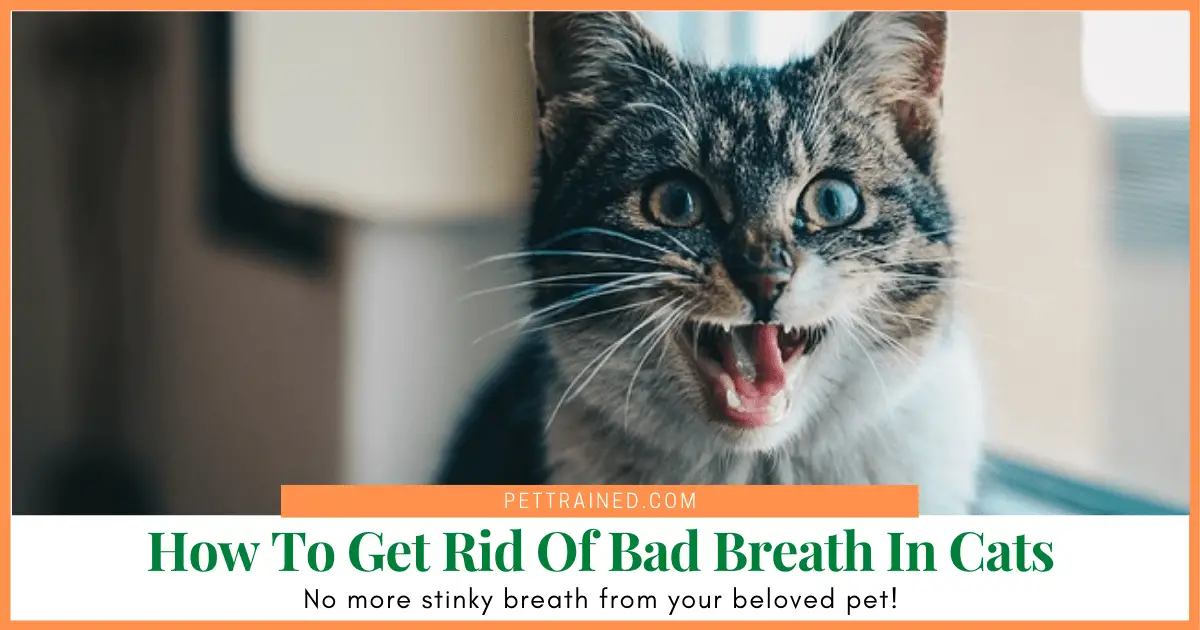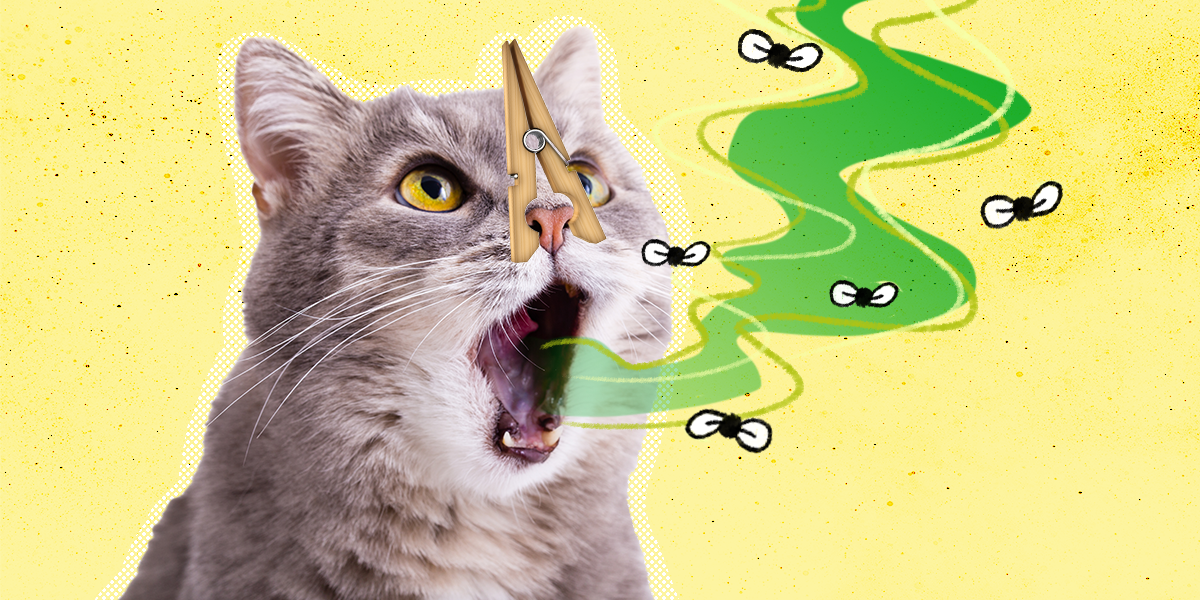If you’ve ever been greeted by a furry feline with an unwelcoming aroma emanating from its mouth, you may have wondered: what’s causing this offensive odor, and how can I fix it? Fear not, fellow cat enthusiasts! This in-depth guide will delve into the underlying causes of bad breath in cats and equip you with proven strategies to restore your pet’s breath to minty freshness.

Image: pettrained.com
Understanding the Root of the Problem: why does my cat have bad breath
Bad breath in cats, scientifically known as halitosis, can have several underlying causes, including:
-
Periodontal disease: This infection of the gums and periodontal tissues is a major culprit of bad breath. Bacteria accumulate on the teeth, forming plaque and tartar, which leads to inflammation and subsequent tissue damage.
-
Oral tumors: Oral cancers and other growths in the mouth can cause persistent bad breath due to tissue decay and the release of volatile compounds.
-
Kidney disease: As kidney function declines, waste products build up in the body, leading to an ammonia-like smell on the breath.
-
Diabetes: High blood sugar levels can cause a fruity or acetone-like odor on the breath.
-
Dental trauma: Injuries or fractures to the teeth or gums can lead to bacterial overgrowth and subsequent bad breath.
Fixing Bad Cat Breath: A Journey to Fresh Feline Smiles
Addressing bad breath in cats involves a multi-faceted approach that encompasses dental care, dietary adjustments, and underlying medical condition management. Here’s a comprehensive plan to embark on this olfactory adventure:
-
Regular dental checkups: Just like humans, cats need regular dental checkups to maintain oral health. Your veterinarian will thoroughly examine your cat’s mouth for any signs of disease, clean their teeth, and perform any necessary dental procedures.
-
Home dental care: Daily tooth brushing is the cornerstone of good oral hygiene for cats. Use a soft-bristled brush and a veterinary-approved toothpaste specifically designed for felines. Start slowly and gradually introduce your cat to the process to build trust and prevent resistance.
-
Dental water additives: These additives contain enzymes or other ingredients that help reduce plaque and freshen breath. Always consult with your veterinarian before adding any additives to your cat’s water.
-
Dental treats and toys: Certain dental treats and toys are designed to help clean teeth and freshen breath. Look for products approved by the Veterinary Oral Health Council (VOHC).
-
Diet: A healthy diet is crucial for overall feline well-being, including oral health. Avoid giving your cat sugary snacks or table scraps, which can contribute to plaque buildup.
-
Underlying medical condition management: If your cat’s bad breath is caused by an underlying medical condition, such as kidney disease or diabetes, treating the underlying issue should alleviate the foul odor.
Expert Insights and the Path to Success
Renowned veterinarian Dr. Emily Lessoff, a specialist in feline dentistry, emphasizes the importance of early intervention in feline dental care. She advises, “Prevention is key. Starting a daily dental care routine when your cat is young can significantly reduce the likelihood of developing dental disease and bad breath.”
Veterinary dental hygienist Lisa Aumiller shares her tips for successful home dental care: “Make the experience positive for your cat by using flavored toothpaste and rewarding them with treats. Also, be patient and consistent with daily brushing.”

Image: www.thedodo.com
How To Fix Bad Cat Breath
A Fresh Conclusion: Reconnecting with Your Feline Friend
Eliminating bad breath in cats not only improves their overall health but also strengthens the bond between you and your cherished companion. By addressing the underlying causes, practicing good dental hygiene, and incorporating our expert recommendations, you can ensure that your feline friend’s breath remains as fresh as a summer breeze. Remember to consult with your veterinarian for personalized advice tailored to your cat’s specific needs. As you embark on this journey, embrace the rewarding experience of restoring your cat’s smile and rekindling the joy in those warm, purring embraces.